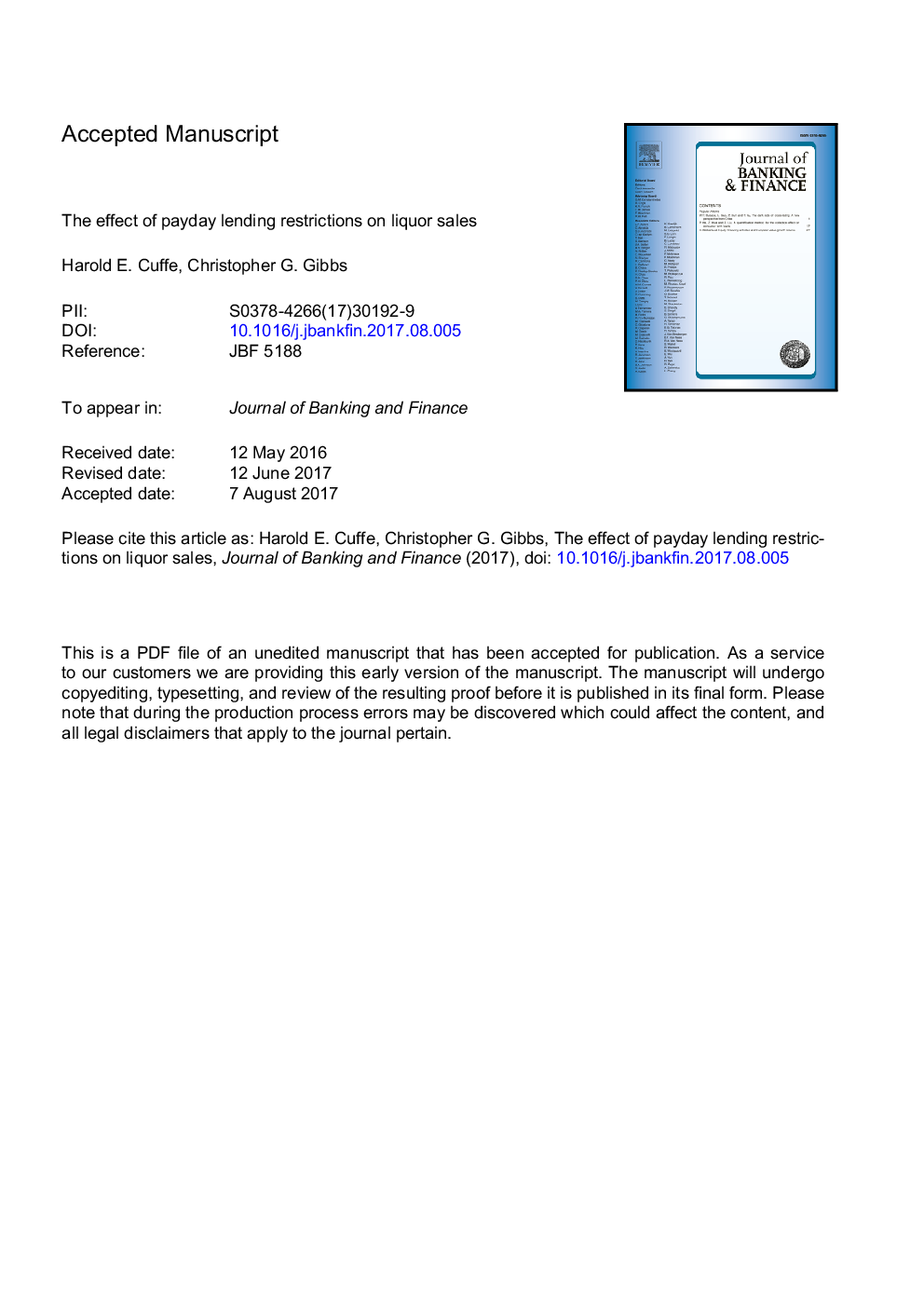| Article ID | Journal | Published Year | Pages | File Type |
|---|---|---|---|---|
| 5088032 | Journal of Banking & Finance | 2017 | 44 Pages |
Abstract
We exploit a change in lending laws to estimate the causal effect of restricting access to payday loans on liquor sales. Leveraging lender- and liquor store-level data, we find that the changes reduce sales, with the largest decreases at stores located nearest to payday lenders. By focusing on states with state-run liquor monopolies, we account for endogenous supply-side variables that are typically unobserved. Further analysis of consumer-level data indicates that the lending restrictions reduce alcohol expenditures without affecting total household spending. This is consistent with a distinct relationship between payday lending access and alcohol purchases, and suggests that present biased motivations underlie some loan use. The finding is significant because it shows that payday loan access is associated with unproductive borrowing, and directly links payday loan access to public health issues.
Related Topics
Social Sciences and Humanities
Economics, Econometrics and Finance
Economics and Econometrics
Authors
Harold E. Cuffe, Christopher G. Gibbs,
